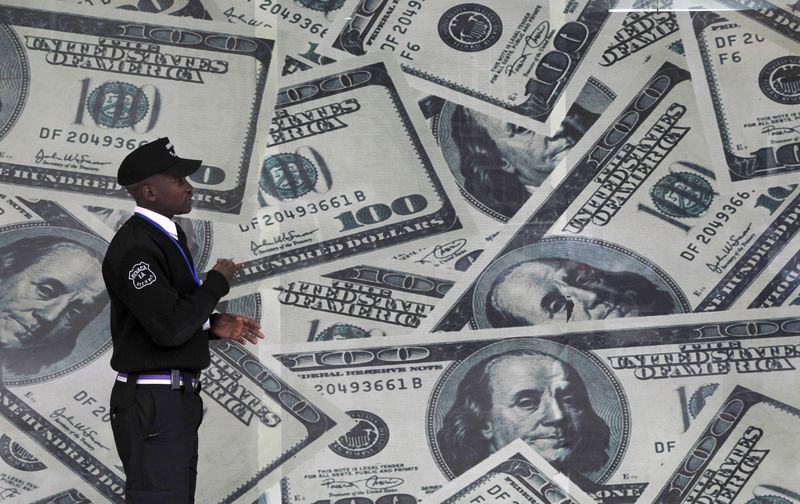Investing.com – The dollar remained steady in Asia on Tuesday late morning as Syria's situation improved. Investor risk appetite revived amid easing geopolitical tensions as more strikes at Syria seemed unlikely. The market shifted focus to economic data from China, the world’s second largest economy, on Tuesday and the high-level trade talks between the U.S. and Japan this week to look for cues.
The U.S. dollar index that tracks the greenback against a basket of six major currencies steadied at 89.14 at 11:00PM ET (03:00 GMT).
In the U.S. on Monday, retail sales came in better-than-expected, rising 0.6% versus a 0.4% forecast. Core retail sales came in as expected at 0.2%. Traders will be looking for any comments on monetary policy and the number of expected rate hikes this year as several Fed officials speak this week.
U.S. President Donald Trump and Japan’s Prime Minister Shinzo Abe are set to meet on Wednesday to discuss trade, among other things. Investors also watch closely if U.S. officials try to put pressure on Japan after the U.S. Treasury’s semi-annual currency report published on Friday kept Japan on a monitoring list for possible manipulation. In addition, Trump accused China and Russia of devaluing their currencies.
The USD/JPY pair eased 0.07% to 107.05. Embroiled in scandals, Abe was under pressure to resign at the end of June as approval rate fell to a new low. He has been plagued by a cronyism scandal involving land sales over a school for months, when documents were founded tampered to remove references to him and his wife.
In China, The People's Bank of China set the fix rate of yuan against the dollar at 6.2771 versus the previous day's 6.2884. The USD/CNY pair eased 0.22% to trade at 6.2810.
China’s GDP growth figures for the first quarter of 2018 came in at 6.8% year-on-year, in line with market expectation. Its industrial production data were worse than expected though, posting 6.0% compared to the estimated 6.4%.
The AUD/USD pair lost 0.15% to trade at 0.7769. The Aussie was weighed down by the disappointing Chinese industrial data. As Australia’s largest trading partner, China’s industrial activity figures could rock the sentiment-linked Aussie.
The Reserve Bank of Australia maintained its dovish monetary policy to keep interest rate at 1.5% as the Bank’s minutes showed on Tuesday that inflation remained below target.
